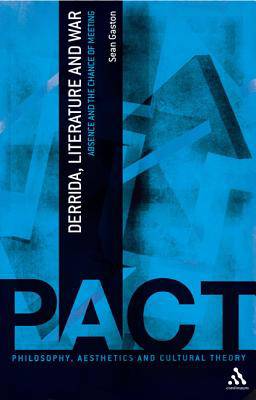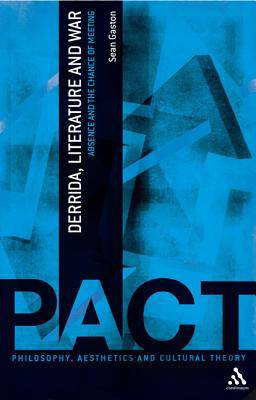
- Retrait gratuit dans votre magasin Club
- 7.000.000 titres dans notre catalogue
- Payer en toute sécurité
- Toujours un magasin près de chez vous
- Retrait gratuit dans votre magasin Club
- 7.000.0000 titres dans notre catalogue
- Payer en toute sécurité
- Toujours un magasin près de chez vous
Description
Derrida, Literature and War argues for the importance of the relation between absence and chance in Derrida's work in thinking today about war and literature. Sean Gaston starts by marking Derrida's attempts to resist the philosophical tradition of calculating on absence as an assured resource, while insisting on the (mis)chances of the chance encounter. Gaston re-examines the relation between the concept of war and the chances of literature by focusing on narratives of conflict set during the Napoleonic wars. These chance encounters or duels can help us think again about the sovereign attempt to leave the enemy nameless or to name what cannot be named in the midst of wars without end.
His study includes new readings of a range of writers, including Aristotle, Hume, Rousseau, Schiller, Clausewitz, Thackeray, Tolstoy, Conrad, Freud, Heidegger, Blanchot, Foucault, Deleuze and Agamben.
Offering an authoritative reading of Derrida's oeuvre and new insights into a range of writers in philosophy and literature, this is a timely and ambitious study of philosophy, literature, politics and ethics.
Spécifications
Parties prenantes
- Auteur(s) :
- Editeur:
Contenu
- Nombre de pages :
- 248
- Langue:
- Anglais
- Collection :
Caractéristiques
- EAN:
- 9781847065520
- Date de parution :
- 23-08-09
- Format:
- Livre relié
- Format numérique:
- Ongenaaid / garenloos gebonden
- Dimensions :
- 142 mm x 218 mm
- Poids :
- 453 g

Les avis
Nous publions uniquement les avis qui respectent les conditions requises. Consultez nos conditions pour les avis.






